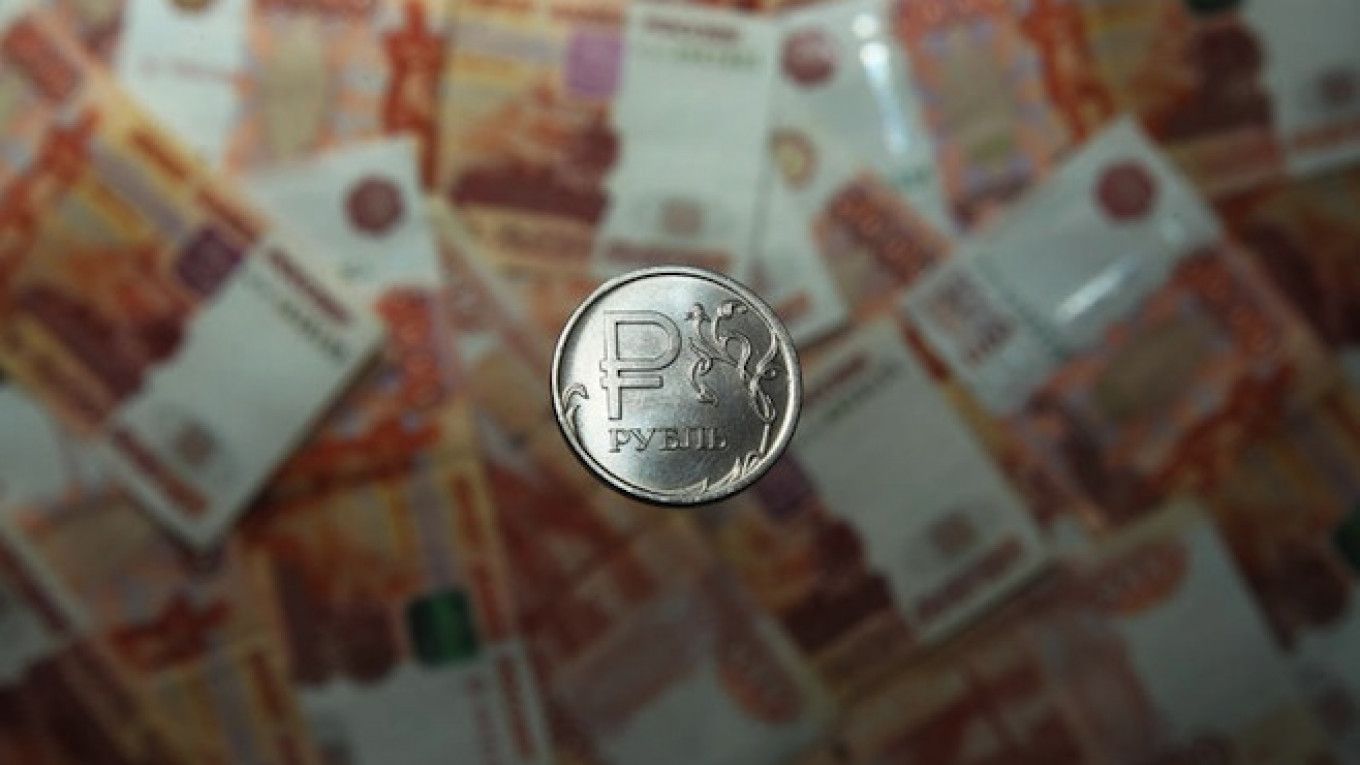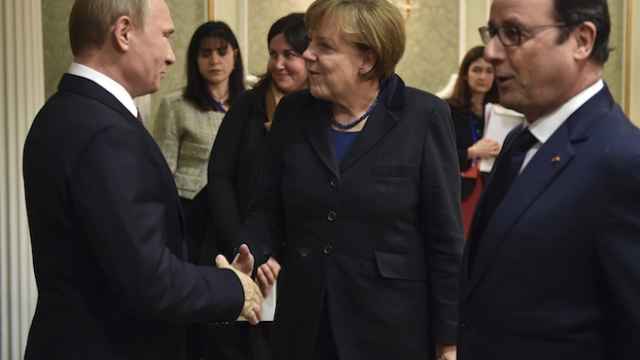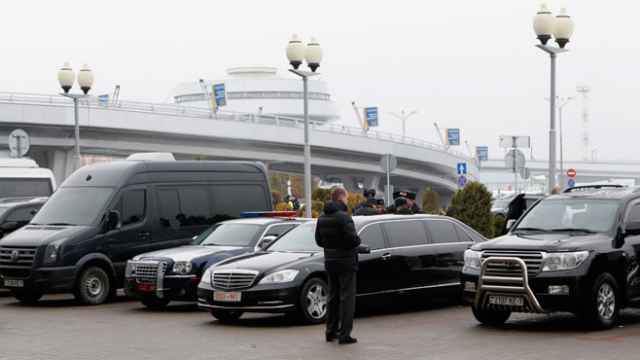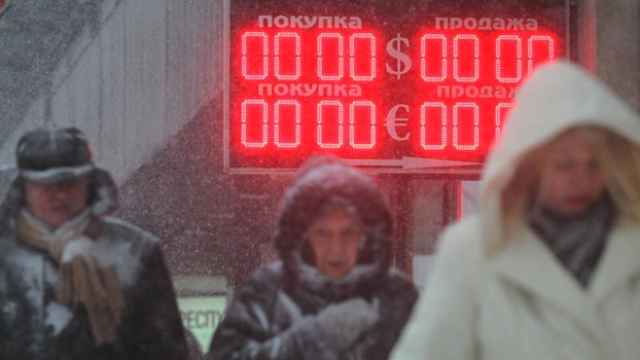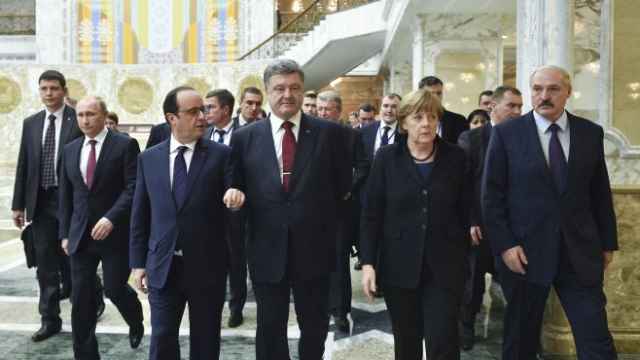Confusion reigned on Russian markets on Thursday, with the ruble sliding and shares wobbling, as uncertainty over the outcome of peace talks in Minsk over the Ukraine crisis put market participants on edge.
At 08:20 GMT, the ruble was about 1.6 percent weaker at 66.28 versus the dollar and 1.6 percent weaker against the euro at 75.14.
"The ruble could only significantly rise from current levels if there are real positives from the Minsk meeting. A lack of agreements, which are the same as a negative, will cause it to slide further," Dmitry Polevoy at ING Bank said in a note.
Moscow-listed shares initially surged before falling back. The dollar-denominated RTS index was up 0.6 percent to 837 points at 08:20 GMT, while its ruble-based peer MICEX was 0.1 percent lower at 1,762 points.
Ukrainian President Petro Poroshenko said certain conditions set by Russia at the talks in Minsk were unacceptable, denting earlier optimism for a breakthrough in the conflict which has killed more than 5,000 people.
A document seen by Reuters, meanwhile, suggested the sides may agree to end fighting in eastern Ukraine with a cease-fire starting on Feb. 14, the withdrawal of heavy weapons and the creation of a security zone.
Details remained unclear after more than 12 hours of peace talks. Participants in the talks said pro-Russian separatists in Ukraine did not want to sign an agreement in Minsk, while the Kremlin's press service said talks were continuing.
Traders were cautious about placing bets until more details became available, temporarily ignoring the positives from a slight recovery in global oil prices and comments by top oil producer Rosneft that it had repaid a $7 billion tranche of a two-year bridge loan.
Rosneft, restricted from international capital markets due to Western sanctions, said it had not bought foreign currency on the market to make the payment.
An earlier debt repayment by Rosneft coincided with a dramatic collapse in the ruble, leading some in the market to believe the oil company was partly responsible for the currency's sharp decline.
Rosneft has denied that it had a hand in the ruble's weakening.
A Message from The Moscow Times:
Dear readers,
We are facing unprecedented challenges. Russia's Prosecutor General's Office has designated The Moscow Times as an "undesirable" organization, criminalizing our work and putting our staff at risk of prosecution. This follows our earlier unjust labeling as a "foreign agent."
These actions are direct attempts to silence independent journalism in Russia. The authorities claim our work "discredits the decisions of the Russian leadership." We see things differently: we strive to provide accurate, unbiased reporting on Russia.
We, the journalists of The Moscow Times, refuse to be silenced. But to continue our work, we need your help.
Your support, no matter how small, makes a world of difference. If you can, please support us monthly starting from just $2. It's quick to set up, and every contribution makes a significant impact.
By supporting The Moscow Times, you're defending open, independent journalism in the face of repression. Thank you for standing with us.
Remind me later.


